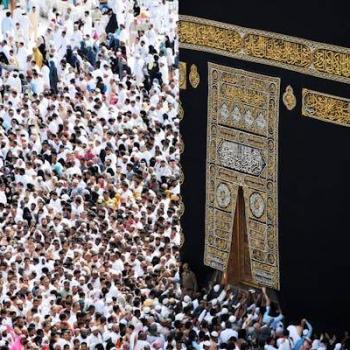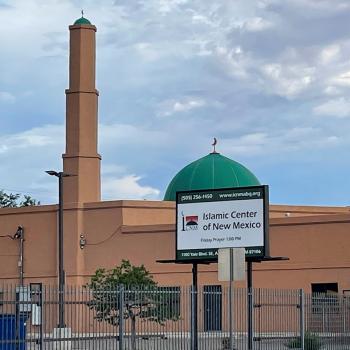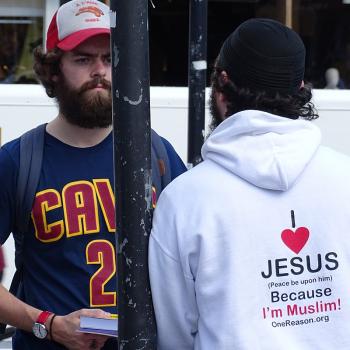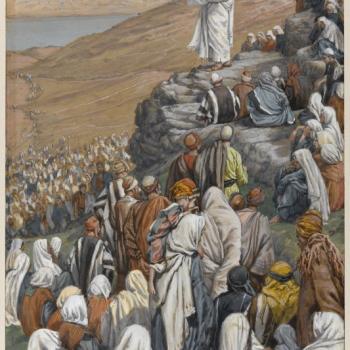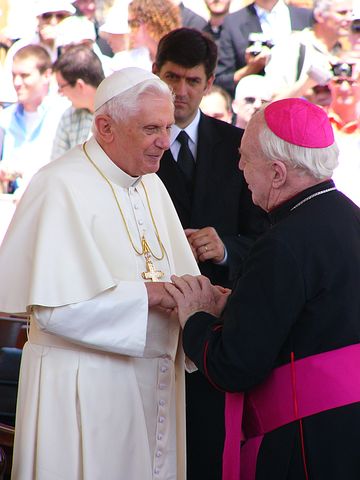 The world is increasing divided among various sects, each claiming to be the righteous one. The Christians identify themselves as Catholics, Protestants, Progressive or Liberal, and further are divided into various churches such as Episcopalians, Methodists, Lutherans, Eastern Orthodox and so on, each claiming to be the true followers of Jesus. Which then bags a similar question I asked of Muslims on my last post: Was Jesus a Catholic, a Protestant, both or neither?
The world is increasing divided among various sects, each claiming to be the righteous one. The Christians identify themselves as Catholics, Protestants, Progressive or Liberal, and further are divided into various churches such as Episcopalians, Methodists, Lutherans, Eastern Orthodox and so on, each claiming to be the true followers of Jesus. Which then bags a similar question I asked of Muslims on my last post: Was Jesus a Catholic, a Protestant, both or neither?
Muslims tend to identify themselves as Shias and Sunnis and yet both claim to be the follower of Prophet Muhammad. My last post asked whether Prophet Muhammad was a Sunni, a Shia, neither or both?
Many of us are engaged actively, and appropriately, in interfaith dialogue. The interfaith workers are passionately involved in promoting peace and harmony among various faith traditions. But what about intra-faith dialogue? Are we equally passionate about promoting peace, understanding and harmony within our “own” religious traditions?
I will not go into an esoteric discussion of the origins of the Catholic Church or the Protestant movement; like I did not go into a similar discussions about the Shias and the Sunnis split but would like to point out that the Catholic Church is the largest in the world with an estimated 1.3 billion adherents, whereas Protestants are the second largest group of about 900 million that includes the Baptists, Lutherans and the Presbyterians. They resisted the Roman Catholic Church and base their faith on five Solae – a set of basic principles, which includes Sola Scriptura, essentially stating that the Bible explains itself (in much the same way as the Quranists among the Muslims do).
Sunni generally refers to the ones following the Sunnah (tradition) of Prophet Muhammad. Shia literally means ‘adherent’ or ‘follower’ and refers to the follower of Ali, Prophet Muhammad’s son-in-law and cousin. The term “Shian-e-Ali” has come to be associated with the “lovers of Ali”. Traditionally, Sunnis, the largest sect in Islam, refers to those who recognize Abu Bakr as the Caliph after Prophet Muhammad, whereas the Shias believe that Prophet Muhammad in his lifetime had appointed Ali his successor (Wali) on his return from the last Hajj at the pond of Ghadeer.
1400 years later, we are deeply divided as an Ummah on this issue, to the extent that we often consider ourselves Sunni or Shia first and foremost.
 Similarly, 2000 years after the Christ, my Christian cousins seem to be divided and often consider themselves as Methodists, Lutherans, Episcopalians, Presbyterians, Roman Catholics and Eastern orthodox first and foremost.
Similarly, 2000 years after the Christ, my Christian cousins seem to be divided and often consider themselves as Methodists, Lutherans, Episcopalians, Presbyterians, Roman Catholics and Eastern orthodox first and foremost.
Are these bonds (believing in God and loving Prophet Muhammad and loving Jesus) not strong enough to bring us together? Many of us would rather not talk about intra-faith dialogue because it is a “sensitive” subject, as if not talking about it would solve the problem. The Qur’an points out we were created “different” so that we may get to know each other, and that we started to “differ” and get divided instead, often judging each other along the way.
O mankind! We created you from a single (pair) of a male and a female, and made you into nations and tribes, that you may get to know each other (not that you may despise (each other). Verily the noblest of you, in the sight of God, is the best in conduct. Verily Allah God is All-Knowing, Aware. 49:13
Mankind was one single nation, and God sent Messengers with glad tidings and warnings; and with them He sent the Book in truth, to judge between people in matters wherein they differed; but the People of the Book, after the clear Signs came to them, did not differ among themselves, except through selfish contumacy. God by His Grace Guided the believers to the Truth, concerning that wherein they differed. For God guided whom He will to a path that is straight. 2:213
And in whatever thing you differ in, the judgment thereof is (in) God’s (hand); that is God, my Lord, on Him do I rely and to Him do I turn time after time. 42:10
Verily! Your Lord will judge between them on the Day of Resurrection concerning that wherein they used to differ. 32:25
Jesus asked his followers not to judge others. During the Sermon on the Mount, he mentioned the qualities of those who will enter the Heaven, rather than prophesizing any particular group or a church.
“Do not judge others, and you will not be judged”… Matthew 7:1
“Not everyone who calls out to me, ‘Lord! Lord!’ will enter the Kingdom of Heaven. Only those who actually do the will of my Father in heaven will enter. On judgment Day many will say to me, ‘Lord! Lord! We prophesied in your name and cast out demons in your name and performed many miracles in your name.’ But I will reply, ‘I never knew you. Get away from me, you who break God’s laws.’ Matthew 7:21-23
I am going to insert my “Muslimness” here and point out that the Muslims believe the “Father” is a metaphor and symbolic for the God Almighty and that the “Lord” was likely used for “master” as in someone who commands utmost respect.
The question we have to ask ourselves is if we consider ourselves a Shia or a Sunni first and foremost, or Catholic and a protestant first and foremost?
You have heard ‘What would Jesus do?’
To that I may add: “What would Jesus call himself?” If you think he won’t call himself neither Catholic, nor Protestant, then should you?
Similarly, what would Muhammad call himself? If you think he won’t call himself Sunni or Shia, then why would you?




